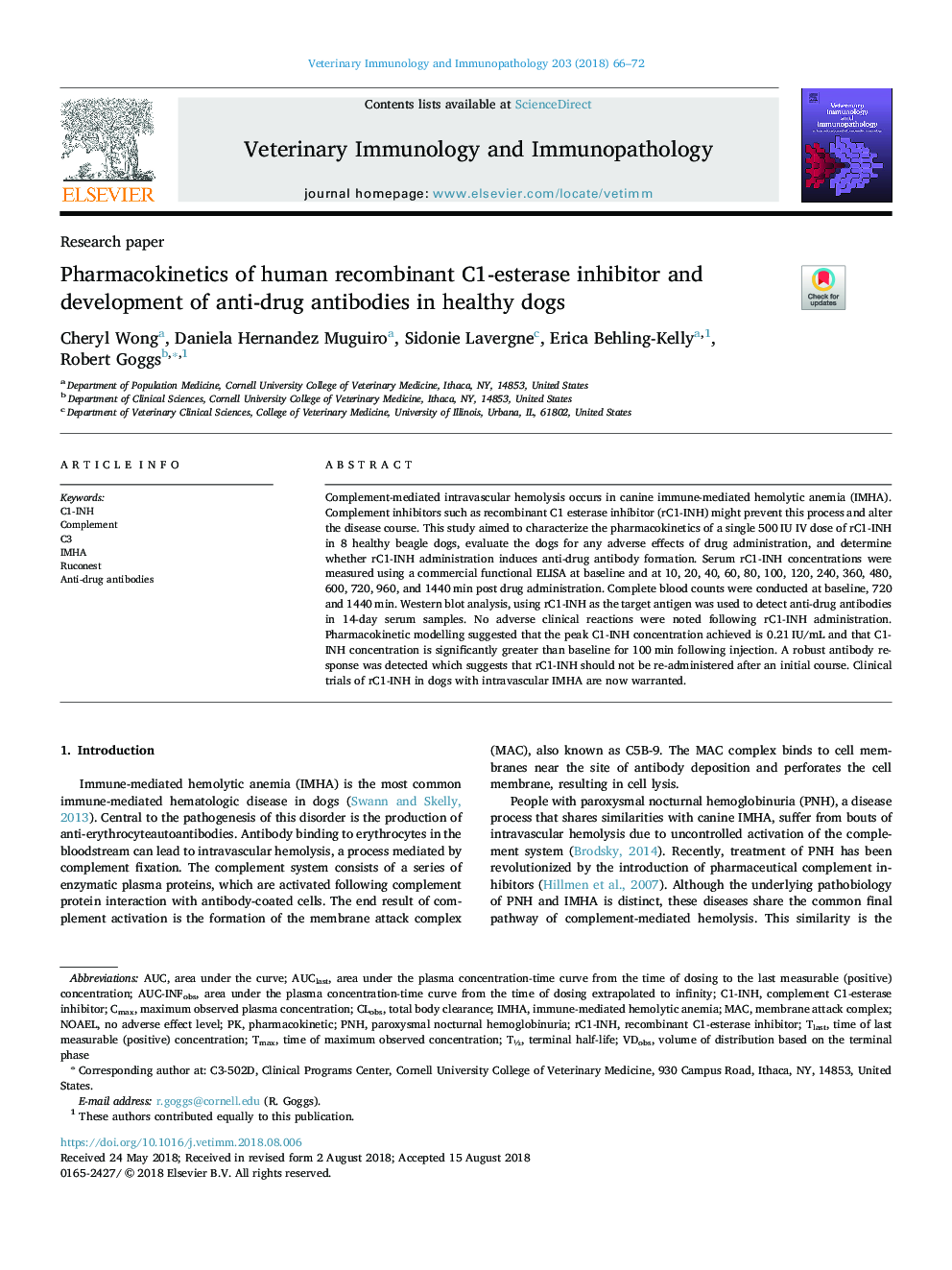| Article ID | Journal | Published Year | Pages | File Type |
|---|---|---|---|---|
| 9954676 | Veterinary Immunology and Immunopathology | 2018 | 7 Pages |
Abstract
Complement-mediated intravascular hemolysis occurs in canine immune-mediated hemolytic anemia (IMHA). Complement inhibitors such as recombinant C1 esterase inhibitor (rC1-INH) might prevent this process and alter the disease course. This study aimed to characterize the pharmacokinetics of a single 500âIU IV dose of rC1-INH in 8 healthy beagle dogs, evaluate the dogs for any adverse effects of drug administration, and determine whether rC1-INH administration induces anti-drug antibody formation. Serum rC1-INH concentrations were measured using a commercial functional ELISA at baseline and at 10, 20, 40, 60, 80, 100, 120, 240, 360, 480, 600, 720, 960, and 1440âmin post drug administration. Complete blood counts were conducted at baseline, 720 and 1440âmin. Western blot analysis, using rC1-INH as the target antigen was used to detect anti-drug antibodies in 14-day serum samples. No adverse clinical reactions were noted following rC1-INH administration. Pharmacokinetic modelling suggested that the peak C1-INH concentration achieved is 0.21âIU/mL and that C1-INH concentration is significantly greater than baseline for 100âmin following injection. A robust antibody response was detected which suggests that rC1-INH should not be re-administered after an initial course. Clinical trials of rC1-INH in dogs with intravascular IMHA are now warranted.
Keywords
Related Topics
Life Sciences
Agricultural and Biological Sciences
Animal Science and Zoology
Authors
Cheryl Wong, Daniela Hernandez Muguiro, Sidonie Lavergne, Erica Behling-Kelly, Robert Goggs,
